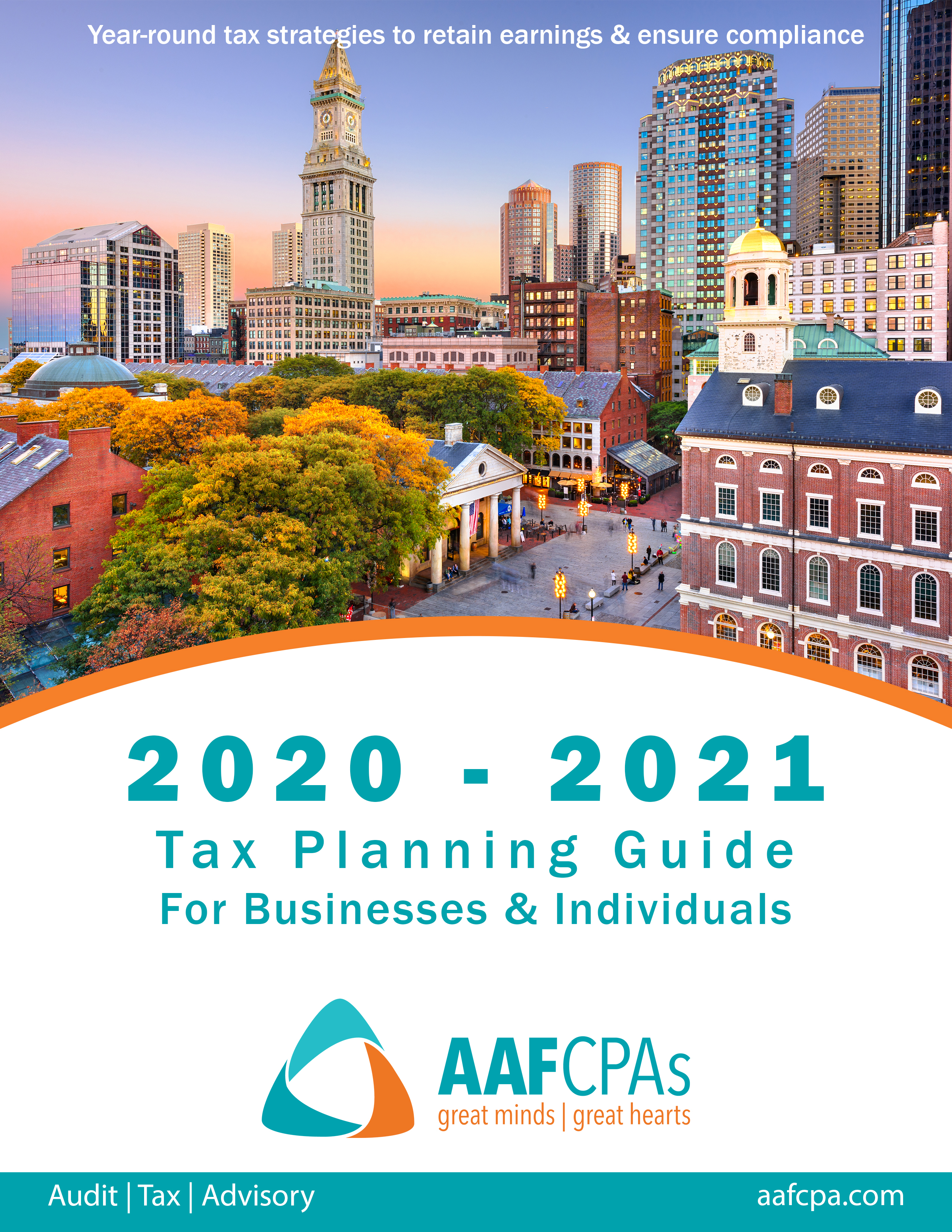AAFCPAs Releases 2020-2021 Tax Planning Guide for Businesses & Individuals
 In 2020, tax planning is more complicated than usual. We now have a full view of the impact of United States’ massive 2017 Tax Cuts and Jobs Act (TCJA) and the 2019 Further Consolidated Appropriations Act on clients’ short and longer-term tax planning strategies. We must now evaluate these Acts in tandem with the $2.2 trillion Coronavirus Aid, Relief, and Economic Security (CARES) Act, and other federal and state pandemic-related stimulus initiatives.
In 2020, tax planning is more complicated than usual. We now have a full view of the impact of United States’ massive 2017 Tax Cuts and Jobs Act (TCJA) and the 2019 Further Consolidated Appropriations Act on clients’ short and longer-term tax planning strategies. We must now evaluate these Acts in tandem with the $2.2 trillion Coronavirus Aid, Relief, and Economic Security (CARES) Act, and other federal and state pandemic-related stimulus initiatives.
To further complicate things, on the state and local level, our Tax Practice is keeping a pulse on the constantly evolving complexities of multi-state taxation. There are over 80,000 state and local tax jurisdictions nationwide, each with its own set of evolving rules and regulations. We are following closely emerging developments as states take aggressive positions in taxing remote employees.
Multi-national companies must balance the myriad of U.S. tax considerations with your worldwide tax optimization strategies.
It may be daunting to understand what to withhold, or not withhold; where to file or not file; where to retire or not retire; or where to expand or not expand. We encourage you to work with your AAFCPAs Tax Advisors who understand the complexities of tax law and are well versed in the full range of actions you may take to retain earnings and mitigate risks for non-compliance.
To help familiarize yourself and begin to identify strategies that might work for you in 2020, AAFCPAs is pleased to share our 2020-2021 Tax Planning Guide for Businesses & Individuals. As you look through this resource, we encourage you to note the sections or strategies that may apply to your situation.
Contents:
- Year-To-Date Review
- Executive Compensation
- Investing
- Real Estate
- Business Ownership
- Charitable Giving
- Family & Education
- Retirement
- Estate Planning
- Tax Rates
Download AAFCPAs’ 2020-2021 Tax Planning Guide for Businesses & Individuals >>
AAFCPAs reminds clients that decisions made throughout the year in response to your unique challenges and opportunities have tax implications. In some cases, the tax benefits of these decisions have windows of opportunity that may close if held and only addressed at year-end. In other cases, tax consequences may be avoided or minimized with timely advice from tax council and strategic planning.
We welcome the opportunity to help you map out a tax plan that takes full advantage of all strategies available to you. Please contact us at your earliest convenience to discuss how we may help you develop a tax plan for 2020 and beyond. Most tax reduction strategies must be implemented by Dec. 31 — and some even earlier. So, the sooner, the better.
